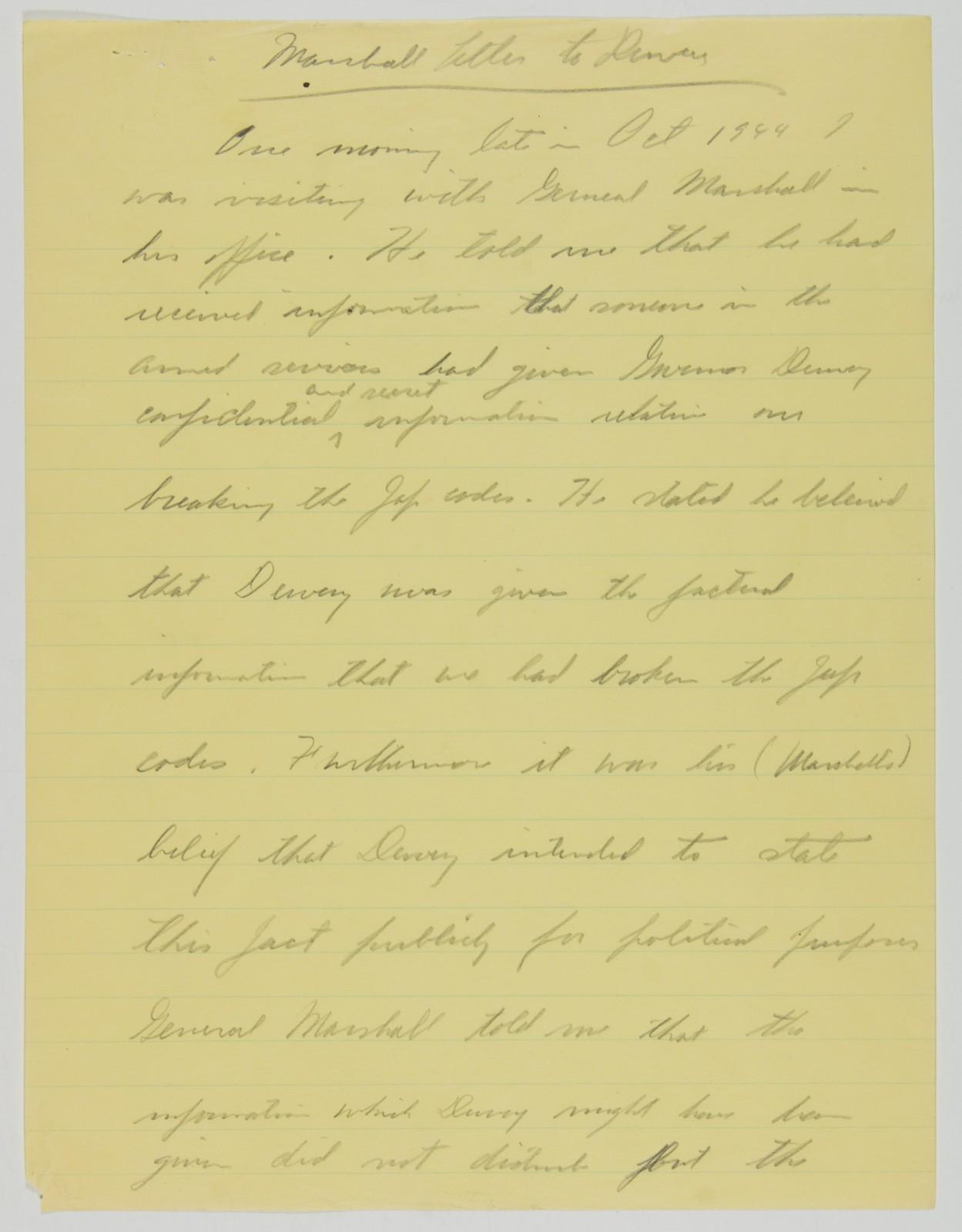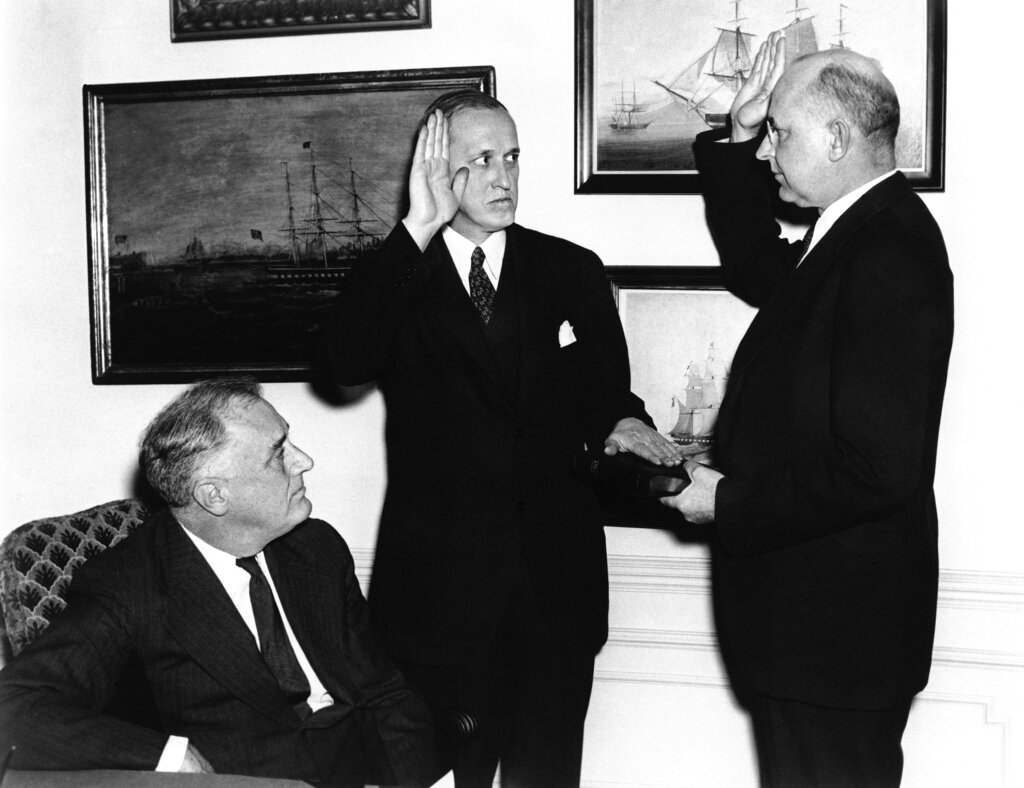A memo revealing the Roosevelt administration’s ability to break Imperial Japanese war codes before the Pearl Harbor attack is going up for auction next week, a valuable historical artifact that was nearly used to derail Franklin Delano Roosevelt’s 1944 reelection.
An unsigned memo was written by FDR insider Harry Hopkins and details the backroom wrangling to keep political foe Thomas Dewey from leaking it in a potential smear campaign to win the election he eventually lost by a mile.
The secret that Americans had broken Japanese military codes in early 1941, months before the December Pearl Harbor attack, was eventually revealed in the early 1980s.
The handwritten memo on yellow paper in pencil is scheduled to be auctioned on April 5 by Maryland-based Alexander Historical Auctions. It is expected to fetch $4,000.

It is a rare artifact of American and World War II history that not only reveals the secret of the project named “Magic” that the Army Signal Intelligence Service used to crack the Japanese war codes but also sizes up the politics involved and hints at the acrimonious relationship between FDR and Dewey.
For example, Hopkins noted that Roosevelt felt that leaking the information would have been a desperate move.

“My opponent must be pretty desperate if he is even thinking of using material like this,” Hopkins said Roosevelt told him.
Dewey, however, said that it should be revealed to show his belief that FDR should have stopped the Japanese attack at Pearl Harbor. “Instead of being reelected, he ought to be impeached,” he said.
“Some people find it amazing that candidates even 80 years ago hated each other so much, they would consider betraying their nation to win an election,” Bill Panagopulos, president of Alexander Historical Auctions, told Secrets.
His “Spring Militaria & Historical Autographs Auction” includes several other World War II items.
The memo up for auction said that an unknown military officer leaked news of the code-breaking to Dewey, sending then-Army Chief of Staff George Marshall into a panic.
“One morning late in October 1944 I was visiting with General Marshall in his office. He told me that he had received information that someone in the armed services had given [presidential candidate New York] Governor [Thomas E.] Dewey confidential and secret information relative our breaking the Jap codes. He stated he believed Dewey was given the factual information … Furthermore, it was his (Marshall’s) belief that Dewey intended to state this fact publicly for political purposes,” reads the memo.
Dewey didn’t.
In his memo, titled “Marshall Letter to Dewey,” Hopkins said the general warned that leaking the information would undermine the U.S. military effort in the war. It quoted Marshall telling Dewey, “You will understand the utterly tragic consequences if the present political debates regarding Pearl Harbor disclose to the enemy any suspicion of the vital sources of information we possess … The conduct of all operations in the Pacific are related in conception and to closely intercepted codes.”

